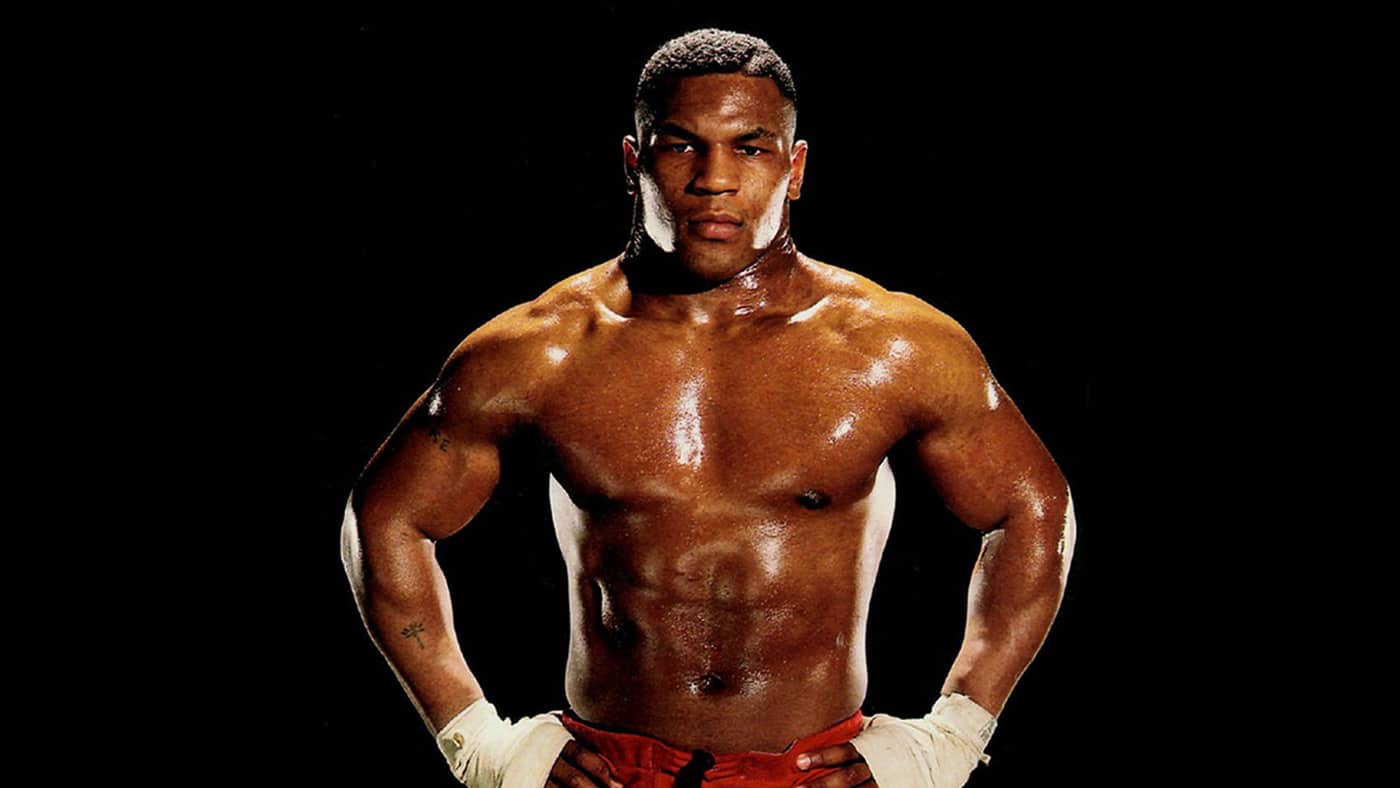Mike Tyson, one of the most iconic boxers in history, has always been known for his powerful physique and intimidating presence in the ring. As a professional boxer, his weight played a crucial role in his career and performance. Fans and sports enthusiasts often wonder about Tyson's weight and how it impacted his fighting style. This article delves deep into the topic, providing you with detailed insights and factual information about Mike Tyson's weight throughout his career and personal life.
Understanding the weight of Mike Tyson is more than just knowing a number. It's about appreciating the discipline and dedication required to maintain peak physical condition in one of the toughest sports in the world. Tyson's ability to manage his weight while retaining his explosive power was a key factor in his success as a heavyweight champion.
Whether you're a boxing enthusiast or simply curious about one of the greatest athletes of all time, this article will provide you with a comprehensive overview of Mike Tyson's weight, its fluctuations over the years, and how it influenced his legendary career. Let's dive in and explore the fascinating world of Mike Tyson's physical stats.
Read also:Gemini And Leo Compatibility Chart Exploring The Cosmic Connection
Table of Contents
- Biography of Mike Tyson
- Overview of Mike Tyson's Weight
- Weight During Tyson's Boxing Career
- Weight Fluctuations Throughout His Life
- Training and Diet for Weight Management
- Health Implications of Tyson's Weight
- Weight Records and Achievements
- Comparisons with Other Boxers
- Weight After Retirement
- Legacy of Mike Tyson's Weight in Boxing
Biography of Mike Tyson
Before we delve into Mike Tyson's weight, let's take a brief look at his life and career. Born on June 30, 1966, in Brooklyn, New York, Tyson grew up in a tough neighborhood where he faced numerous challenges. Despite these hardships, he discovered boxing at a young age and quickly rose to prominence under the guidance of legendary trainer Cus D'Amato.
Data and Facts About Mike Tyson
Below is a table summarizing some key details about Mike Tyson:
| Full Name | Michael Gerard Tyson |
|---|---|
| Birthdate | June 30, 1966 |
| Birthplace | Brooklyn, New York, USA |
| Height | 5'10" (178 cm) |
| Weight (Current) | Approximately 220 lbs (100 kg) |
Overview of Mike Tyson's Weight
Mike Tyson's weight has been a topic of interest for many years. During his prime, Tyson maintained a weight that allowed him to dominate the heavyweight division. His ability to combine speed, agility, and power made him a formidable opponent in the ring.
Key Factors Influencing Tyson's Weight
- Genetics and natural physique
- Intense training regimens
- Strategic weight management for competitions
- Lifestyle changes over the years
Weight During Tyson's Boxing Career
During his professional boxing career, Mike Tyson's weight typically ranged between 200 and 220 pounds. This weight category was ideal for his fighting style, which relied heavily on explosive power and quick movements. Tyson's ability to maintain this weight while staying in peak physical condition was a testament to his dedication and discipline.
According to boxing historians, Tyson's weight during his championship fights averaged around 218 pounds. This weight allowed him to maximize his strength while maintaining the agility needed to outmaneuver larger opponents.
Weight Fluctuations Throughout His Life
Throughout his life, Mike Tyson's weight has fluctuated significantly due to various factors, including his training regimen, personal challenges, and lifestyle changes. In the early years of his career, Tyson maintained a relatively consistent weight, but as he faced personal and legal issues, his weight began to fluctuate more dramatically.
Read also:P Diddys Birthday Celebrating The Iconic Life And Legacy Of A Music Mogul
During his incarceration in the early 1990s, Tyson's weight increased due to a lack of access to proper training facilities. However, upon his release, he worked hard to regain his fighting shape, eventually returning to the ring with renewed determination.
Training and Diet for Weight Management
Mike Tyson's training regimen and diet played a crucial role in managing his weight throughout his career. Under the guidance of trainers like Cus D'Amato and Kevin Rooney, Tyson followed a strict regimen that included:
- Intense cardiovascular exercises
- Strength training to build muscle mass
- Sparring sessions to simulate real fights
- A balanced diet rich in proteins, carbohydrates, and healthy fats
Tyson's diet was carefully planned to ensure he had the energy and stamina needed for his fights while maintaining his weight within the desired range.
Health Implications of Tyson's Weight
While Mike Tyson's weight was a key factor in his success as a boxer, it also had potential health implications. Carrying a large amount of muscle mass requires a strong cardiovascular system and proper nutrition. Tyson's rigorous training helped mitigate some of these risks, but as he aged, maintaining a healthy weight became more challenging.
Today, Tyson focuses on maintaining a healthy lifestyle through regular exercise and a balanced diet. His commitment to fitness serves as an inspiration to many who admire his resilience and determination.
Weight Records and Achievements
Mike Tyson holds several records related to his weight and performance in the ring. Some notable achievements include:
- Youngest heavyweight champion in history at the age of 20
- Record-breaking knockout victories
- Consistent performance at heavyweight levels despite his relatively smaller stature
These records highlight Tyson's ability to excel in the heavyweight division despite not being the largest fighter in terms of weight.
Comparisons with Other Boxers
When compared to other boxers in the heavyweight division, Mike Tyson's weight was often on the lower end. However, his power and speed made up for any perceived disadvantage. Fighters like Evander Holyfield and Lennox Lewis, who were taller and heavier, faced challenges against Tyson due to his explosive strength and strategic approach.
Despite being smaller in stature, Tyson's ability to manage his weight effectively gave him an edge in the ring. His technique and discipline allowed him to compete with and defeat much larger opponents.
Weight After Retirement
Since retiring from professional boxing, Mike Tyson's weight has continued to fluctuate. In recent years, he has made a concerted effort to regain his fighting shape, even participating in exhibition matches. Tyson's dedication to fitness has inspired many to adopt healthier lifestyles.
Through disciplined training and a balanced diet, Tyson has managed to maintain a weight that reflects his commitment to staying active and healthy. His journey serves as a powerful reminder of the importance of physical fitness at any age.
Legacy of Mike Tyson's Weight in Boxing
Mike Tyson's weight remains a significant aspect of his legacy in the world of boxing. His ability to dominate the heavyweight division despite not being the largest fighter is a testament to his skill, strategy, and dedication. Tyson's weight management techniques and training regimens have influenced countless athletes and continue to inspire new generations of boxers.
Final Thoughts
In conclusion, Mike Tyson's weight was a critical factor in his success as a professional boxer. By maintaining an optimal weight through rigorous training and discipline, Tyson became one of the greatest fighters of all time. His legacy in the sport is undeniable, and his influence extends beyond the ring to inspire countless individuals to pursue healthier lifestyles.
We invite you to share your thoughts and questions in the comments below. If you enjoyed this article, please consider sharing it with your friends and exploring other articles on our site. Together, let's celebrate the incredible journey of Mike Tyson and his enduring impact on the world of sports.


